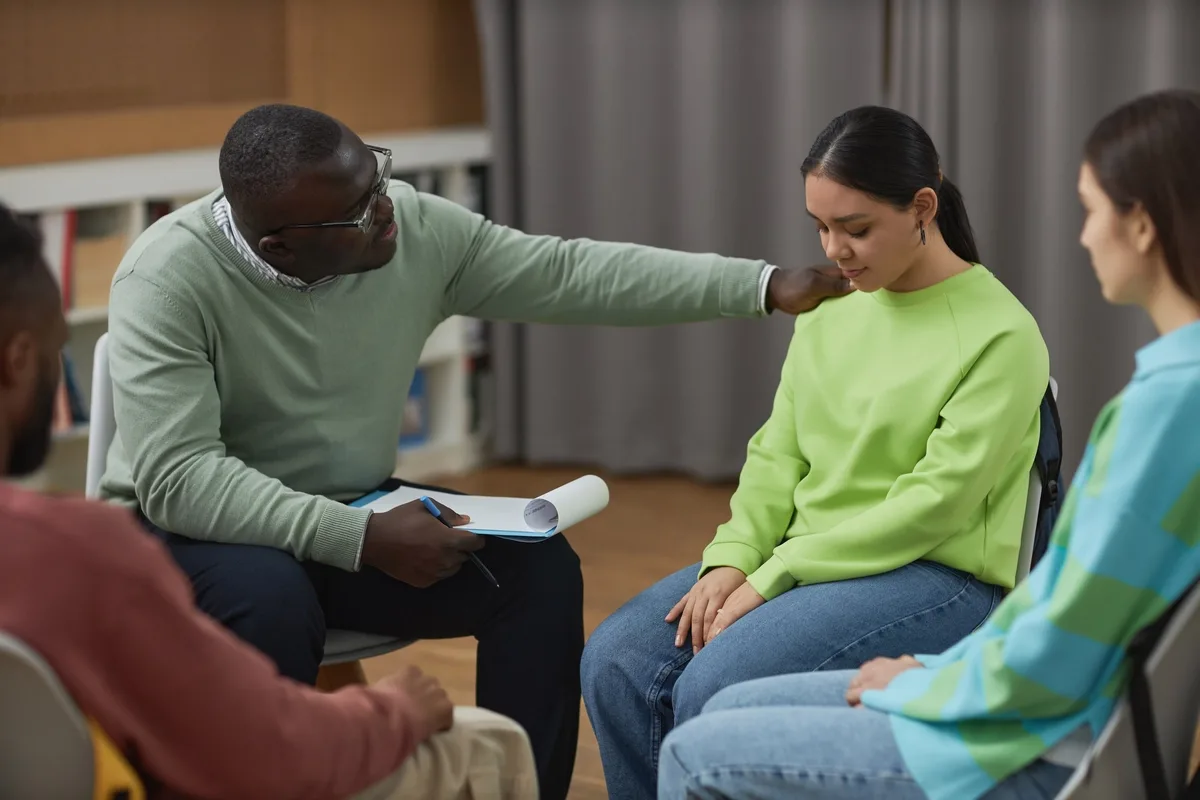24/7 Helpline:
(866) 899-221924/7 Helpline:
(866) 899-2219
Learn more about PTSD Treatment centers in Riner

Other Insurance Options

Magellan Health

CareSource

MHNNet Behavioral Health

Evernorth

United Health Care

Group Health Incorporated

Ambetter

Medical Mutual of Ohio

Ceridian

Amerigroup

Providence

Horizon Healthcare Service

Humana

Access to Recovery (ATR) Voucher

Regence

Self-pay options

WellCare Health Plans

WellPoint

State Farm

Sliding scale payment assistance














